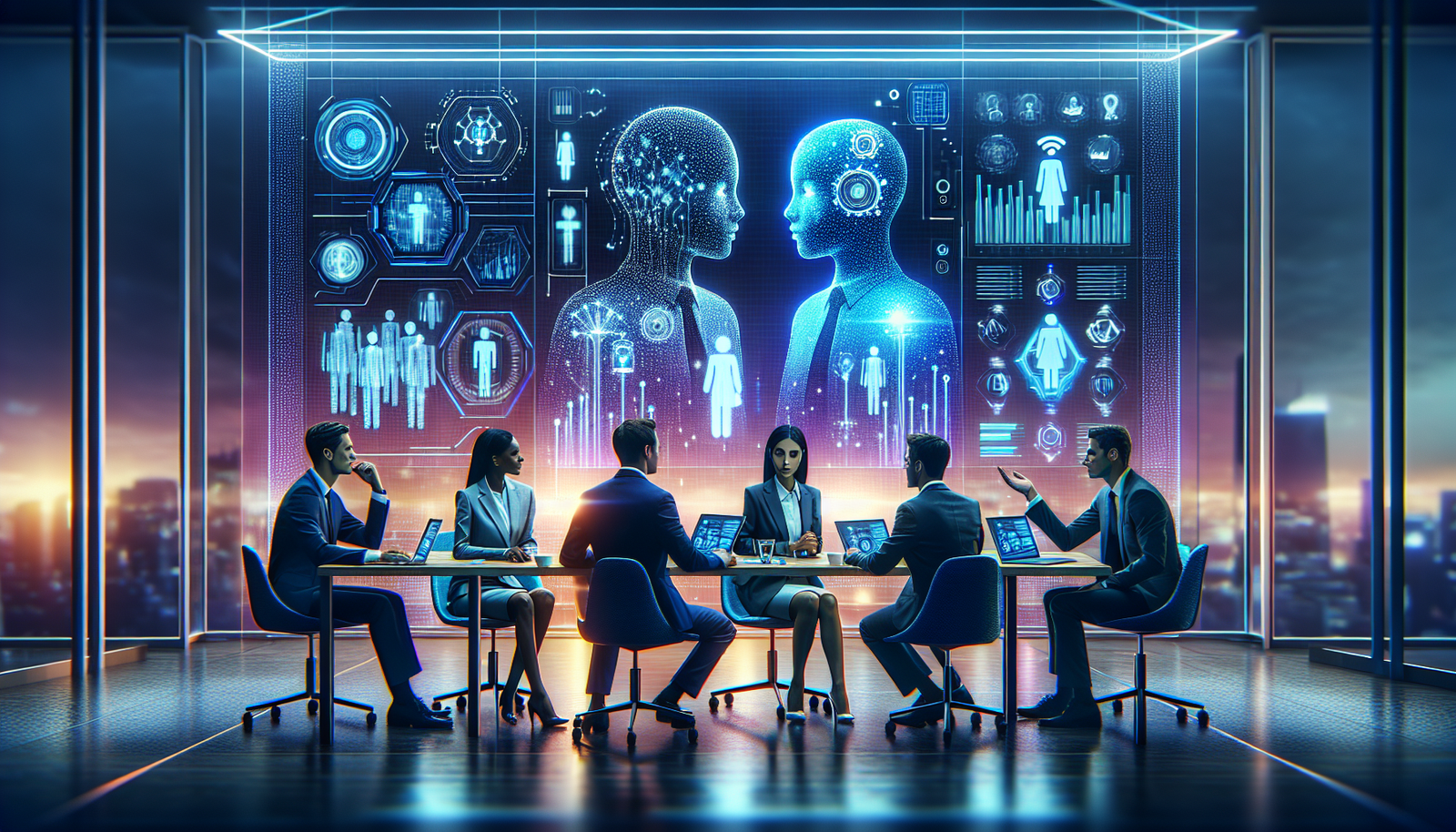The impact of artificial intelligence on human resources is being felt with unprecedented force. Automation is revolutionizing* traditional processes, leading to a redefinition of roles and practices. *Recruitment* is evolving rapidly, integrating intelligent tools that enable more relevant and refined candidate selection. Data analysis** is becoming essential, offering new perspectives for strategic decision-making. Companies must navigate these changes with discernment, seeking to harmonize technological innovation and *employee well-being*. A successful transformation requires deep reflection on the ethical issues related to the integration of AI.
The impact of artificial intelligence on human resources
Artificial intelligence (AI) redefines the standards of human resources by bringing significant advances in automation, data analysis, and recruitment.
A radical transformation of HR practices
Recent events, such as the Summit for Action on AI, have highlighted the growing impact of AI on the world of work. In the human resources sector, this evolution is palpable. The adoption of generative AI in HR information systems (HRIS) offers unprecedented capabilities, allowing for optimized productivity, reduced errors, and a refocusing of professionals on strategic missions.
HR practices are transitioning from a traditional mode to an approach where AI becomes an indispensable partner. Automating repetitive tasks, such as data entry or sorting, not only transforms the way teams work but also enhances their effectiveness.
The benefits of task automation
Artificial intelligence is a lever of efficiency in several areas of HR:
- Task automation: AI can reduce the time spent on manual tasks by up to 80%. This helps to limit human errors and free up valuable resources.
- Data reliability: AI improves the quality of analyses by validating and structuring information. This leads to more informed decisions.
- Decision support: By leveraging large volumes of data, AI generates predictive analyses. This effectively guides talent management strategies.
Recruitment revolutionized by AI
AI transforms recruitment processes by making them smoother and more targeted. With advanced algorithms, it facilitates job offer writing and analyzes applications. This process highlights the profiles best suited to the requirements of available positions.
This automation allows HR teams to focus on more strategic issues and engage in deep reflection on employee well-being and engagement. The benefits of artificial intelligence transform the recruitment function into a process more centered on the human aspect.
Challenges of integrating AI
The integration of AI into HR systems raises a debate about the balance between centralized HRIS and decentralized tools. A global HRIS that centralizes all information promotes data consistency. This optimizes analyses through standardized databases.
A fragmented environment, where various tools exist, complicates decision-making. The effectiveness of AI is directly linked to the quality of available data. Therefore, the application of a unified infrastructure is crucial to maximize the benefits of AI.
Ethics and implications related to AI
The implementation of AI requires particular attention to ethical issues, especially concerning data protection. Critical decisions should not be made solely by algorithms, particularly if they concern employees’ careers.
Companies must establish relevant use cases and train their teams on the implications of AI. Transparency and human oversight are essential to ensure that AI serves the interests of employees, rather than replacing them.
Towards a harmonious future for human resources
Generic AI opens doors to a promising future for human resources. Companies, by integrating this technology in a structured framework, can enhance their efficiency without sacrificing the human element. Advances must be monitored to prevent potential pitfalls.
Challenges remain abundant, but the benefits that AI can bring to human resources are undeniable. Thus, AI positions itself as a catalyst in the evolution of practices related to management and improving employee experiences.
For a deeper understanding of the issues related to AI, it is necessary to follow developments such as critical analyses and emerging regulations on AI. Companies must also adapt to the new realities of the market, particularly in light of the adaptation challenges faced by industry giants.
Current trends demonstrate that AI is now an indispensable ally for SMEs, as evidenced by new opportunities emerging for the future.
Finally, the rise of startups in the AI field, such as DeepSeek, underscores the growing importance of this technology. This dynamic illustrates that the integration of AI into HR practices is just beginning, promising an attractive and innovative future.
FAQs about the impact of artificial intelligence in human resources
How does artificial intelligence optimize the recruitment process?
It automates the writing of job offers, sorts applications by analyzing resumes, and selects the most suitable profiles, which reduces processing time and improves the quality of recruitment.
What are the main advantages of task automation in HR through artificial intelligence?
Automation significantly reduces the time spent on repetitive tasks, minimizes human errors, and frees HR professionals to focus on strategic and high-value missions.
What are the ethical implications of using AI in human resources?
Companies must ensure transparency in AI use, protect employee data, and avoid biases in algorithms to prevent negatively influencing employee career decisions.
How does AI enhance the employee experience within organizations?
Through intelligent systems, AI can personalize training recommendations, analyze employee feedback and sentiments, and foster more effective interactions among teams, thereby improving satisfaction and talent retention.
What role does predictive analysis play thanks to artificial intelligence in human resources?
Predictive analysis uses historical data to anticipate trends, allowing HR professionals to make informed decisions regarding recruitment, training, and performance management, thus optimizing talent management.
What specific artificial intelligence technologies are used in HR information systems?
Diverse tools such as applicant tracking systems, chatbots for employee on-demand service, and data analysis software are commonly integrated into HRIS to streamline processes.
What are the limitations of artificial intelligence in the field of human resources?
Limitations include reliance on quality data, the risk of bias in algorithms, and the need for human oversight to ensure fair and context-appropriate decisions.






